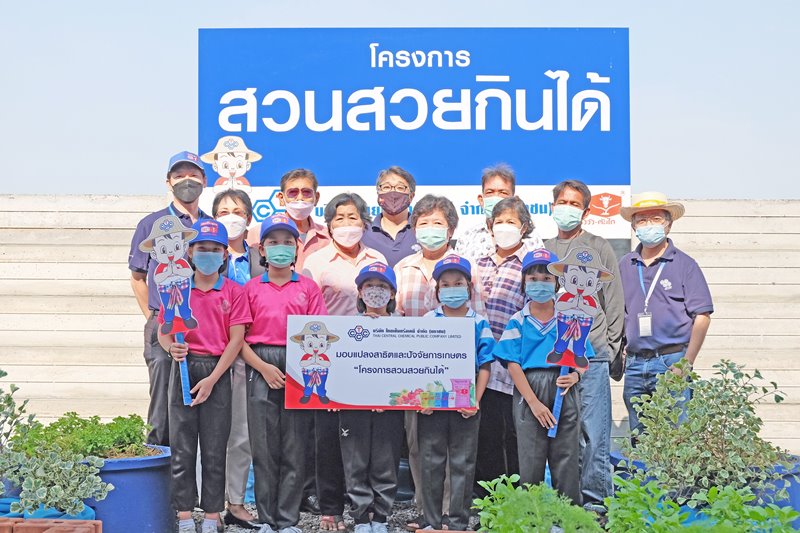Thai Central Chemical Public Company Limited continued "The Edible Vegetable Garden Project Season 5", moving forward to encourage agricultural knowledge and correct usage of chemical fertilizer among Thai youths.

Mr. Munetake Kawakita (Middle of third row) - Executive Officer & Senior Vice President of Thai Central Chemical Public Company Limited (TCCC), leading high quality NPK compound fertilizer producer and distributer of chemical fertilizer in Thailand under OX-Brand, Baby, Singha and TCCC Brand, presented the demonstration plot and agricultural equipment under the Edible Vegetable Garden Project to Wat Na Un School, received by Mrs. Chalalai Chaichompoo (1st Left of second row) - School Director. In addition, honored by Ms. Chintana Sakcharoenchai (2nd Left of second row) – Jor Charoen Wattana Rice Mill, Chairman and Directors of the Board of Education, Pailom Subdistrict Headman, Village Headman Moo 2 and Moo 3 were also invited to participate in this activity.
The Edible Vegetable Garden Project is an ongoing project organized by TCCC for the 5th consecutive year. At present, there are a total of 8 schools participating in the project, and Wat Na Un School is the 9th school. The objectives of the Edible Vegetable Garden Project are to provide the correct knowledge and understanding of basic agriculture, from basic knowledge to practical procedures for primary school students, starting with sowing seeds, cultivation, and fertilization properly to increase the productivity. In addition, TCCC hopes that the schools participating in this project will be able to use the products to benefit students in the lunch program, and the surplus products will be able to be sold in order to raise funds for the project and generate income for the school as well. In the classroom, there are activities to play games, answer questions, give away prizes and do practical training at the demonstration plot that the company has given to the school. TCCC sincerely hopes that the Edible Vegetable Garden Project will be able to practice skills for students to grow home-grown vegetables, maintain and harvest, including the products distribution and accounting of income-expenses, and make students earn money while studying, moreover, this project will be a learning center for cultivating vegetable gardens according to the philosophy of sufficiency economy in the community in a sustainable way.